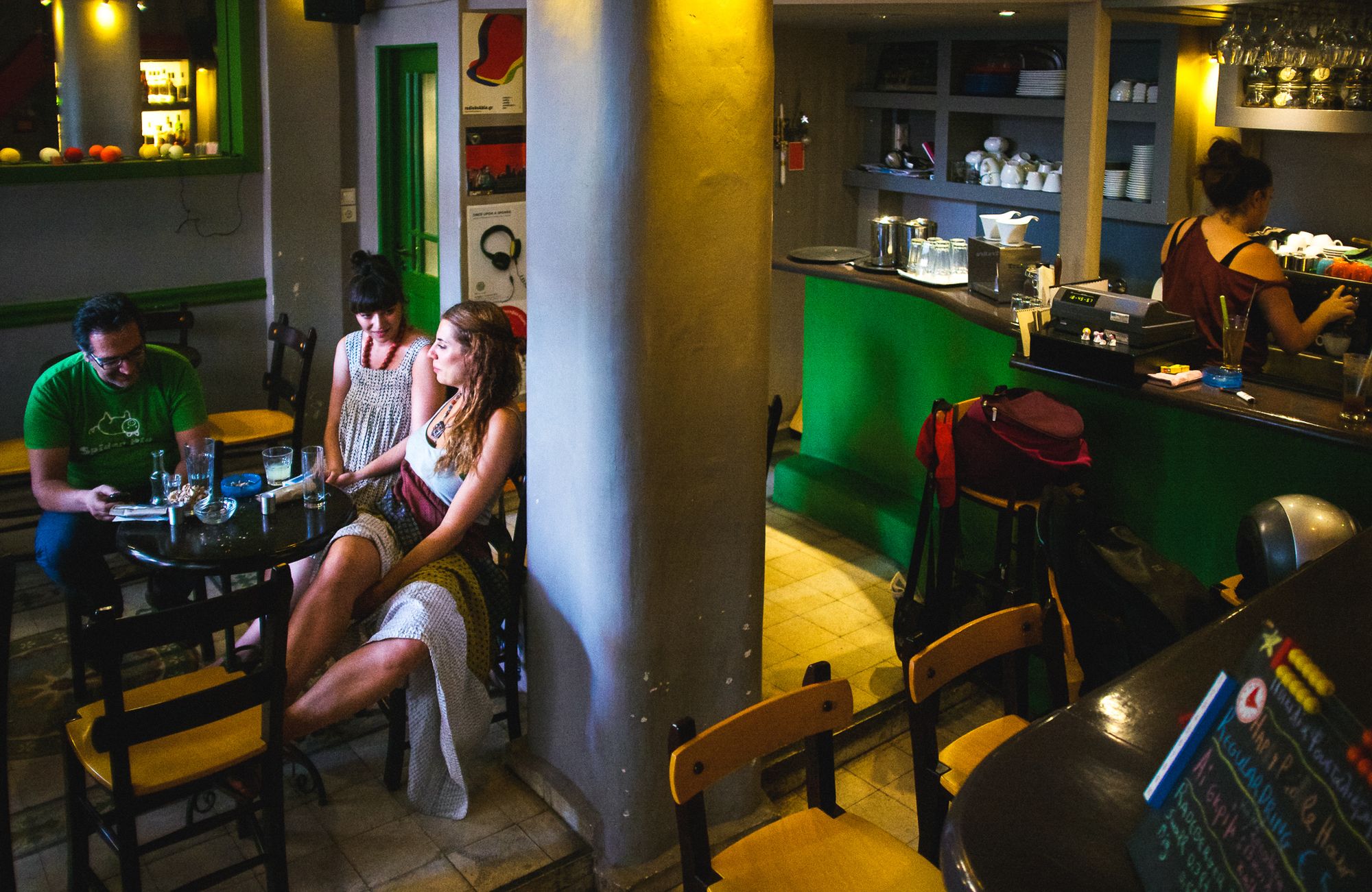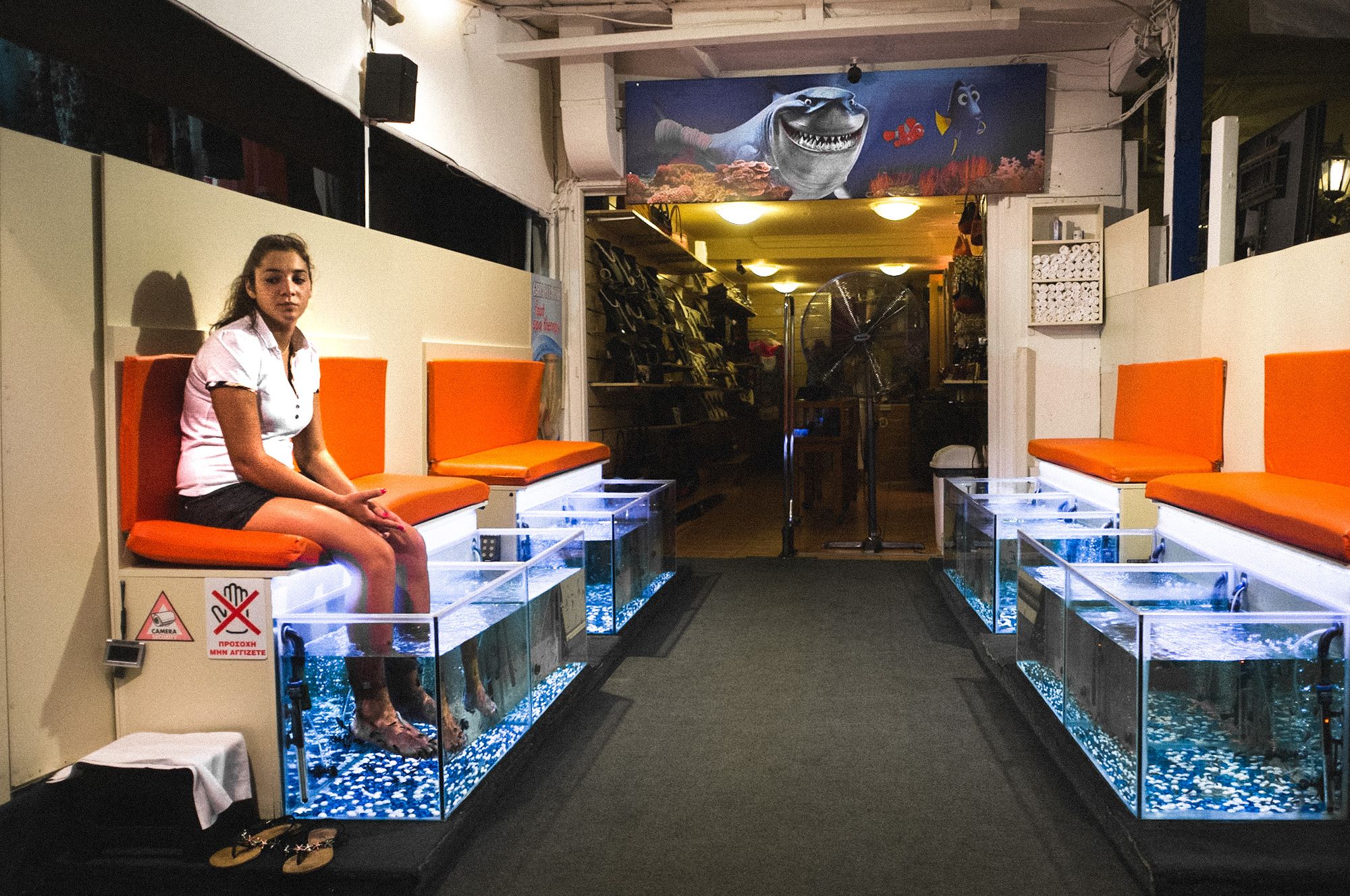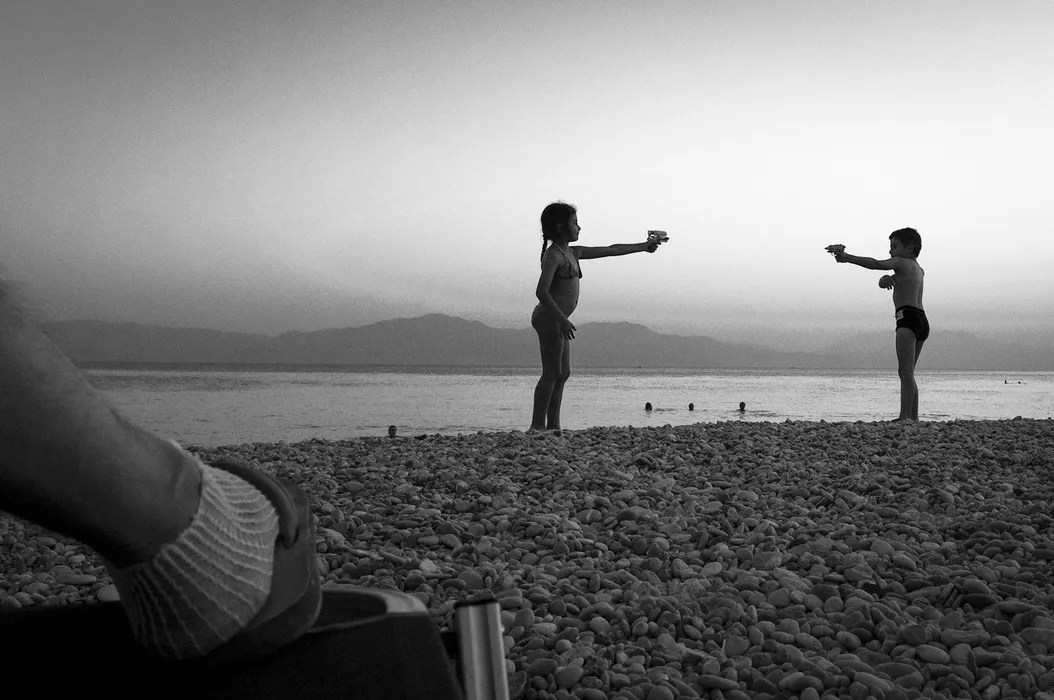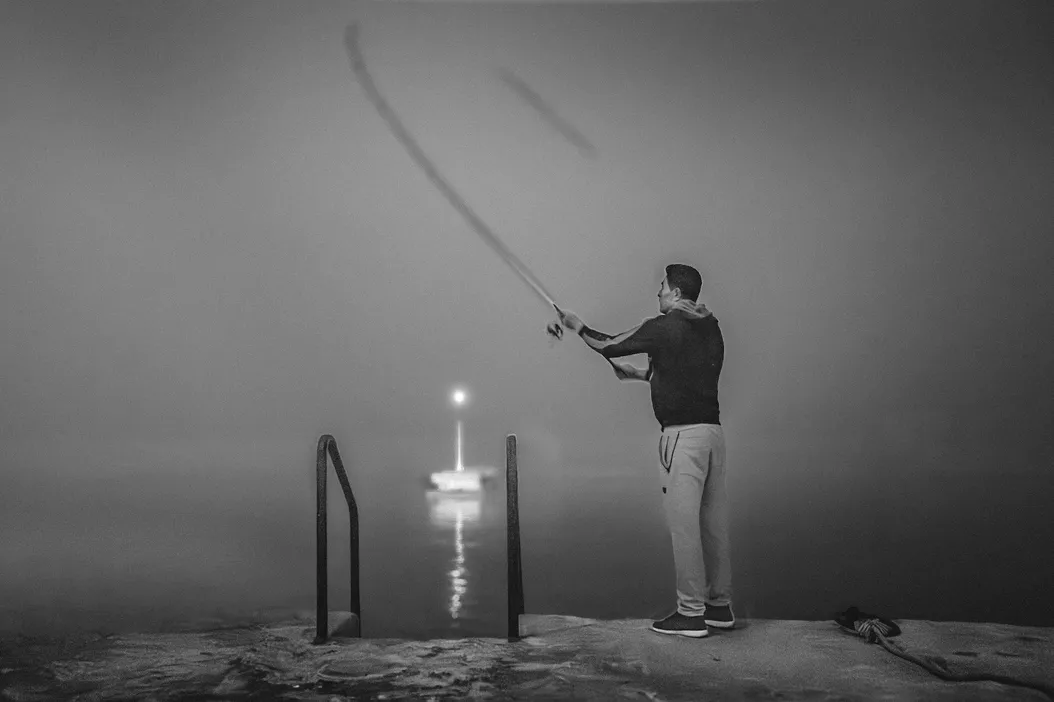Athens, 2011-2016

When I lived in Athens, I had the same pleasant routine a few times a week.
I'd enter a café, to work on my laptop. Order coffee, trying to pass for a local. And make a new friend.
Some background: I look Greek. And I can do the accent. But after all these years in Greece, I still can’t speak the language well. (Almost everyone speaks English. And I’ve been lazy. And I feel bad about it.)
My opening sentences in these café encounters were easy, as I was well-practised. Hello. I’d like a coffee. Ena freddo espresso sketto.
Then I’d ask the person for the Wi-Fi code, which they'd point out to me or write. Around now, I'd be thinking things were going well.
But then the person would, unknowingly, spin the ball. They’d tell me about some promotion they had on. Or ask if I had the exact amount for the coffee, explaining that they were low on change. Or they’d make a comment about the weather.
I’d try to play along. But in so doing, I’d screw up the gender of a noun, or use the wrong tense. The person's expression would change from relaxed to surprised. And I'd know I'd been busted.
Where are you from? they’d ask, switching to English. I'm Iranian, I’d say, to keep things simple. (I’m half-English, but English males of my age don’t have the best reputation in Greece. And I've never felt English anyway. Or Iranian. Or anything for that matter.)
And so with this person I'd have a lovely conversation that was a bit like an interview. The questions were usually the same, and I'd answer them all. What are you doing here? Why would you move to Greece, in the middle of an economic crisis? What's a political consultant exactly? What do you think of what's happening to us? What’s going on in Iran? Oh, your mother's from the UK. I guess that’s why your English is so good. Wait, you grew up in Luxembourg? What the hell?
Sometimes others listening in would get involved, too. And once I'd answered their questions, I’d unload all of mine onto them. Their personal stories, their views on the crisis, the future, Greek politics, the latest insanity of Big Capital. It was a valuable, non-judgmental discussion between humans who were curious about each other.
And because remote work can be a lonely business, by the time I sat down at my laptop, my mind had expanded, my spirits refreshed. It was wonderful.
Then I moved to Crete, and my routine stopped.
Chania, 2016-present

Chania is the second largest city on Greece's largest island, Crete. It’s a major tourist destination, with its population of 100,000 swelling to hundreds of thousands more in the summer months.
In Chania's cafés, my experience was very different to Athens. The staff would detect I was foreign, and not react at all. They were polite, sure, but it was business only before moving to the next customer. No questions from them, and none from me.
This bothered me – a lot. Cafés have always been my offices when I'm not travelling or working from home; having people around is important to me. The cafés of Chania were good workspaces. But I missed my old mate: the Friendly Stranger. I longed to learn about other lives, but didn't feel comfortable to ask.
More than that, though, I wondered: what's wrong with these people? How could they be so incurious? Reverse the roles, and I’d at least ask the Greek-looking laptop guy with the crap Greek where he was from. But even after I became a regular in some cafés, the staff didn’t seem interested. So I kept to myself. "The locals are incurious" became my regular complaint to friends abroad.
It was only after a year of this that I learned why. Out with friends one night, locals themselves, I explained my predicament. You've got it wrong, said my friends. The people here aren't incurious. They're shy.
I mentioned the proprietor of one café, who had always been aloof with me. "Yeah, that's Spiros," a friend said. "Actually, he asked me about you and told me not to tell you. He had lots of questions."
Chania may be touristic, she explained, but unlike in Athens its people still have traditional values. In this environment, you don’t ask strangers about their lives. The locals are proud, and that means they're discreet. And to the staff in cafés, foreigners equals tourists. They don't know how to categorise you, Mehran. What you don’t know, can feel threatening.
I had rushed to judgment about the locals in my adopted city. And I had learned something more valuable.
The rush-to-judgment reflex
When people don’t react how you expect, you’re often quick to ascribe to them a negative motivation. Especially if their reaction bothers you.
But this is a self-protection mechanism. Your mind serves up an explanation for their behaviour to save you energy. To avoid you having to figure these people out. It twists your perception to fit a premade mental model, based on incomplete information, devoid of context.
This reflex is at the root of so many disagreements today. From Trump and Brexit to workplace battles, online fights and road rage. You wonder "What's wrong with these people?" And then quickly answer yourself by slapping descriptions onto them. Ignorant. Gullible. Incurious. Woke. Reactionary.
And over time, reinforced by others from your tribe who think the same, these adjectives harden into nouns. Labels like fascists. Groupies. Whatever-phobes. Reactionaries. Deplorables. And it's all downhill from there.
Pushing back
Resisting this reflex isn't easy. In Chania, I was lucky I had a year to figure it out, and friends to show me what I was missing.
The good news, though, is that once you're aware of the reflex you're already well on your way to controlling it. And that your mind will do the work, if you let it.
So when you see a negative reaction from someone, online or off, don't respond immediately. Pause, breathe, or sleep on it. And try to fill that space with context.
Of course, you might find out your initial hunch was right. Sometimes people are so different to you that common ground is impossible.
But it's far more likely that your antagonist wants the same things you do. That they've had a different background, different experiences. And that the exchange you're having with them makes them uncomfortable, or afraid. And that this is how they react.


